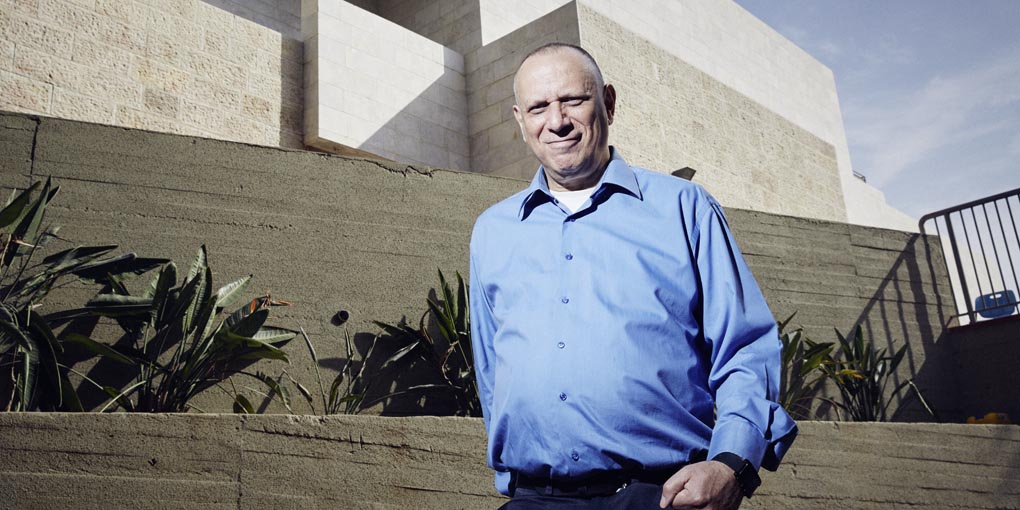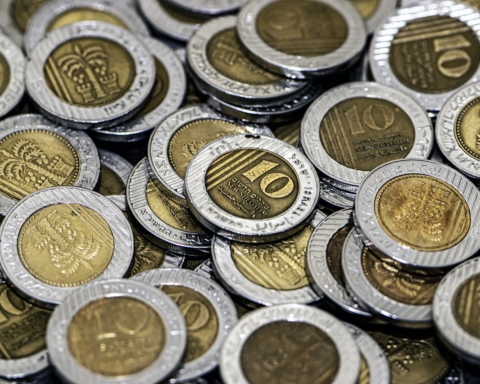If green symbolises success, the north of Tel Aviv is bright green. It takes a half hour drive into the middle of nowhere called Hakvar Hayarok where you won’t only find the most fertile fields. You’ll also find the plain buildings of Israel’s up and rising high-tech industry.
This is where Dov Moran is located – the famous inventor of flash drives or USB sticks doesn’t need visual stimulations. He prefers plain, productive and pragmatic environments. “We don’t need to create creative chaos. The whole country is a creative challenge for fast thinkers,” says the 60-year old high-tech pioneer.

Whoever thinks of Israel and technology can’t exclude Dov Moran. He is a legend. Founding his first company in 1989 straight after graduating at Haifa’s Technion, they started researching new ways to move data – financed by the US-company Miltope in Hope Hull, Alabama. Nowadays Miltope is one of the top tiers of military equipment. “Back then they were simply fascinated by the idea to transport large amounts of data independent from batteries and robust data chips,” remembers Moran.
M – as in mobile
His company is called M-Systems – m as in mobile. And while the world of computer geeks researches magnet-based discs, Moran was digging into the field of new storage with his closest employees Aryeh Mergi, Dana Gross and Amir Ban.
However, there was basically no market for transportable data. We are talking about the 1990s, very few private households had computers and hardly anyone thought about storing data.
Software vs Hardware
One day, Moran was supposed to present at a client’s office, but his computer broke down and the other machines didn’t recognize his data. “This was the breaking point. I understood that it was wrong to concentrate on storage chips alone. It was much more important to develop software that supports computers to recognize other data carriers as external hard-drives.”
He divided his business idea and developed not only the storage medium but also the software for computers. The catch was the speed – the first versions were slow. Very slow. From today’s point of view, data exchange was a matter of eternity. And it wasn’t financially sufficient. “The first years were hard, sometimes it was hard to pay wages.”
Think big(ger)
Moran needed more money and was thinking about selling one of his storage-ideas as individual business unit to an investor. “However, the investor suggested a different scenario,” Moran remembers. His idea was to go public.”
It works out. Overnight M-Systems is worth $4m. “I thought this amount of money will last forever,” says Moran.
Forever lasted 2.5 years. They didn’t need more time. In 1995 M-Systems was granted the patent for their ‘True Flash Filing System’, number 5404485 at the American patent office. This software enabled computers to recognize external media as external storage. Their second innovation in 1995 is three centimetres long: DiskOnChip, that should become an eruptive technology after 1999 and worldwide known as Disk-on-Key or USB-stick.
Disruptive technology
The first USB-stick has a storage capacity of 8 megabyte and cost $50. The technological world is enthusiastic: this magic stick offered five times more storage capacity than disks. M-Systems is showered with innovation awards. Toshiba, IBM, everybody wanted to invest in Dov Moran’s company.
Less than two years later USB-sticks have become a global standard.
Personally, Moran considers the software recognition software one of his bigger successes. “This paved the way for flash storage in mobile phones. Without this software, computers couldn’t communicate with other storage media today.”
The transition
Turnover was rising, from 2001 to 2006 from $45 m to $1B revenue. Moran received an offer that was too good to miss. 17 years after its foundation M-Systems was sold for $1.6B to SanDisk Corp. Moran made $80 m net profit. And promised to stay for another six months. “On my last day, I put my things into a box and left my office around noon to start my next business idea.” It was less than an hour between being handing over his successful business to becoming start-up founder.
Modu – a great idea and yet no success
The next business idea, a small mobile phone called Modu, didn’t take off. But Moran wouldn’t be Moran if he hadn’t continued. He founded Comigo, a multimedia-box that connects technical devices. This time it worked out and Moran was able to hand over a flourishing company to Motty Lentzitzky in 2015.
Investments in the future
The legend was looking for new challenges – and turned from entrepreneurship to investment. “The future is based on brave people, innovative ideas and technology that is eruptive,” believes Moran. Consequently he founded Grove Ventures – a start-up accelerator that focuses on hardware for Internet On Things, Cloud Services and Big data. He target market is China where Moran sees most growth potential. However, his entrepreneurs are all in Israel. “I am only able to help if I know the people,” he explains. In the past 40 years he learned what it takes to succeed in the market. “In Israel you don’t need much more than good people, a cheque and luck.”






